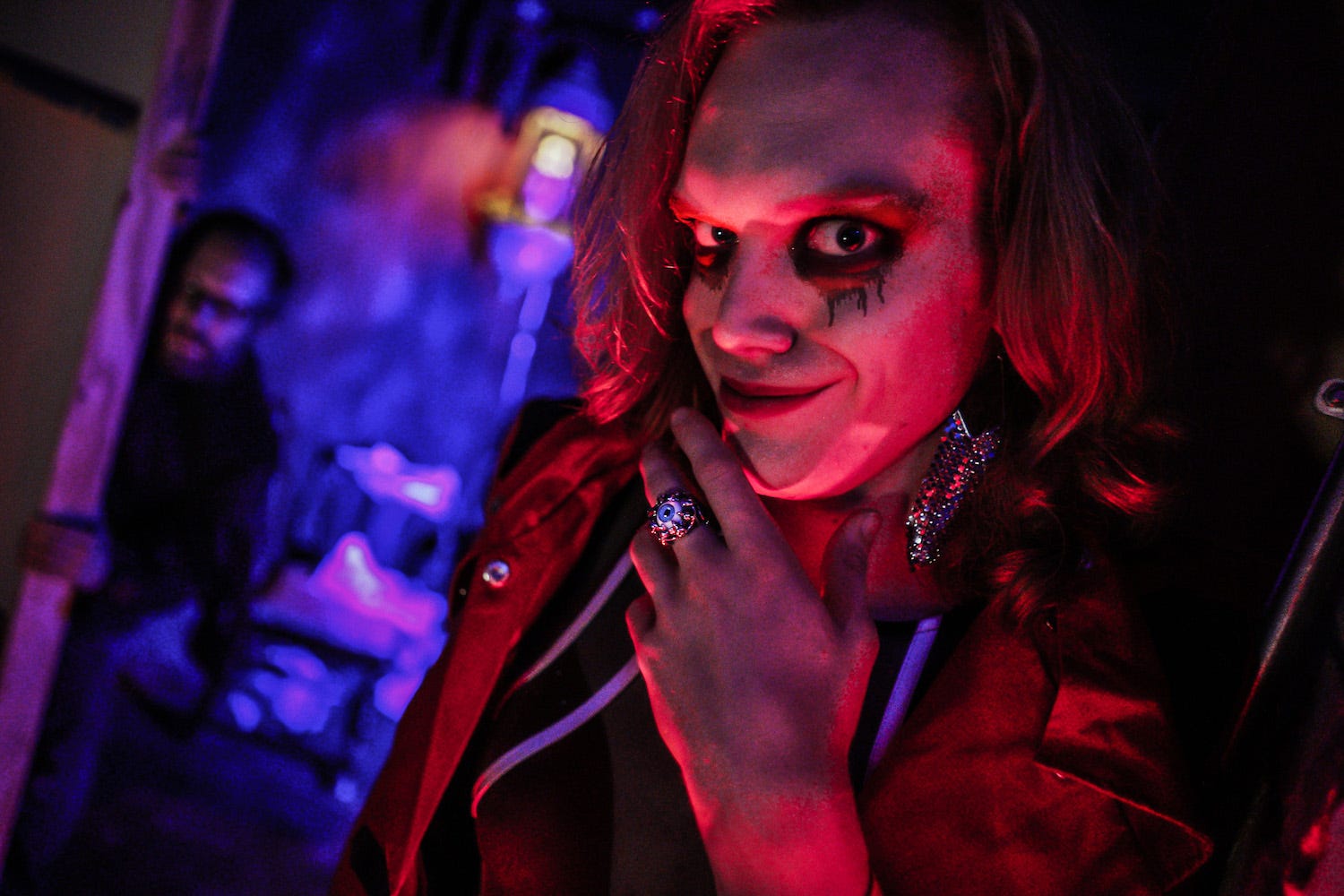
The thrumming is getting louder. Amelia is struggling to go on.
She’s nice, in an eccentric, creepy sort of way, but most of all she’s vulnerable; she’s in pain.
“Pain is good. That’s what you said earlier, right Amelia? It helps you grow. You can get through this,” I say, holding her hands in mine and looking straight in her eyes. It was an intense scene — fear and horror mingling with sympathy, tempered by trepidation. It might as well have been a one-on-one for how little the rest of the Dark Passage audience was trying to interact. For an audience of about thirty people and a cast of five performers, it was shocking how much one-on-one interaction I was getting.
And then, an audience member finally said it: the line that put the evening in sharp focus.
“Oh my god, he’s talking to them; do you think he’s part of the show?”
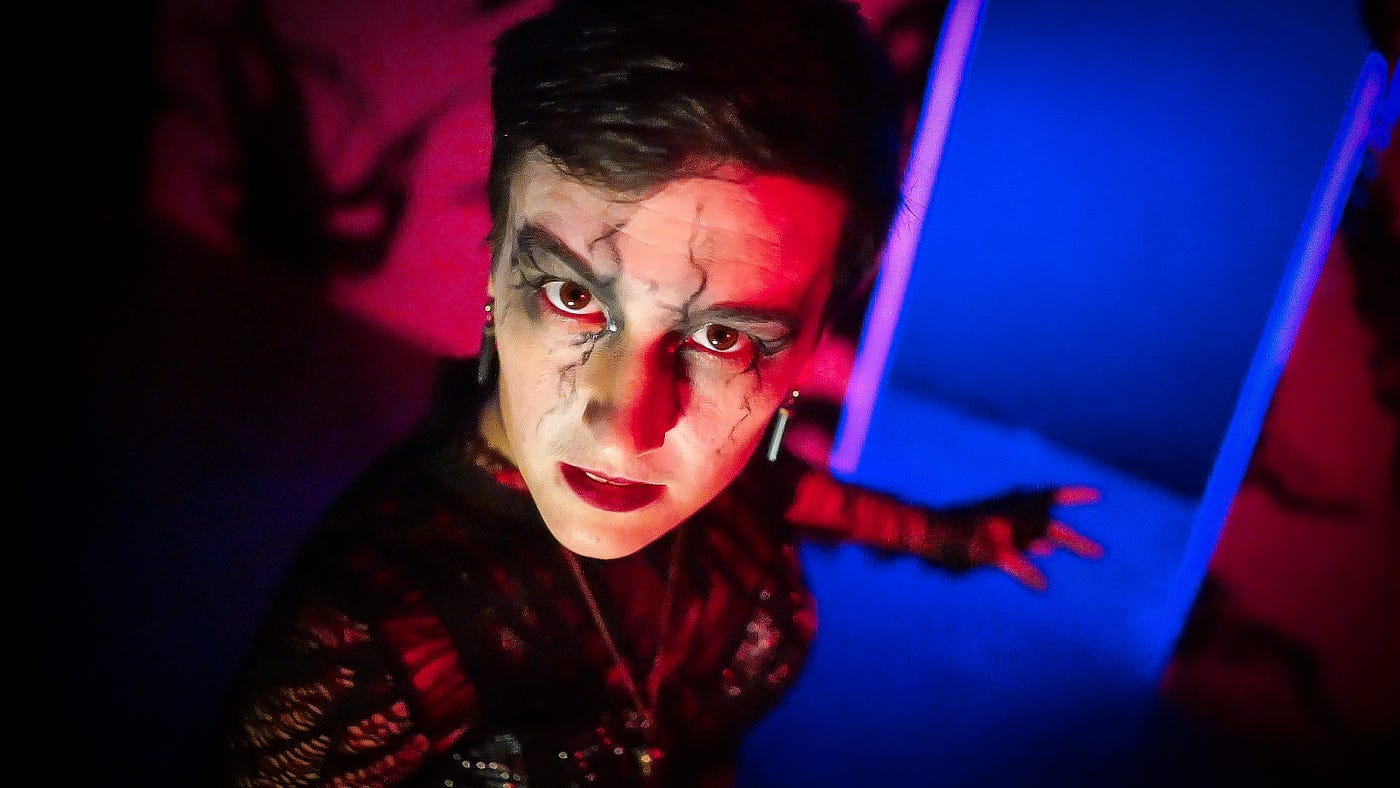
I hate to use the phrase “pearls before swine.” For one, I’m sure the audience are lovely people— to call them ‘swine’ would be terribly insulting. But I sincerely wish they could have connected with Dark Passage to the degree I did. The sets are lavish. The actors are passionate and nuanced. The plot is a twisting puzzle box begging to be solved. The onboarding is gentle and educational. Which is why it’s so disappointing that the audience didn’t seem to quite connect with the show during my performance.
Dark Passage has a somewhat high-concept premise to start with: a portal has opened to the afterlife, ripped open by Amelia, a stereotypical meddling “mad scientist” type. You are part of an initial team of explorers, diving in to learn the secrets of the afterlife. It’s not all fluffy clouds and harp playing cherubs though; this opening has somehow stopped the wheel of reincarnation, and the ensuing struggle has created a power vacuum that could result in a civil war, a war with all souls across all dimensions hanging in the balance. It plays almost as an escape room with no puzzles: explore the space, talk to the characters, try to figure out what really happened, discover what the true nature of the afterlife is, and then try to use that knowledge to prevent any of the numerous, looming tragedies.
And tragic they are — the play packs an emotional punch. The stakes are high; the great risk to your life is stated numerous times. The tone manages to walk the delicate line between melodrama and Halloween fun. A spooky bar offering up silly named house cocktails (“The Soul Stealer,” “The Shattered Memory”) serves as your gateway to the afterlife. It’s also prime selfie real estate. All in all, Dark Passage manages its dual nature as a theatrical piece and seasonal haunt without feeling fragmented or torn in opposing directions. The appeal to fans of either is obvious.
Get Blake Weil’s stories in your inbox
Join Medium for free to get updates from this writer.
SubscribeSubscribe
The sets are without a doubt some of the best in the immersive industry (perhaps showing off Pseudonym Productions’ roots in themed entertainment). Filled with subtle hints at the larger story for those willing to dig through the details and awe-inspiring levels of eerie beauty for more passive audience members, they manage to engage all the senses and create a fully fledged world in a relatively small space for an exploratory piece. The environments also present a great opportunity for visual storytelling during moments when the small cast are engaged with other audience members.

Probably the biggest strength (and weakness) is the piece’s nature as a “puzzle.” I’m reluctant to give much detail as to the narrative within Dark Passage because of how the story relies on secrecy. The audience members is implicitly cast as detectives within the terrifying story world of the show. With a branching narrative and looping scenes, it’s clearly designed for multiple viewings, allowing participants more time to solve the mysteries. One character remembering me upon my return (as I attended twice in one weekend) and actually acknowledging the loop’s existence was a fabulous subversion of the form popularized with Sleep No More. My first viewing was a thrill ride, pressing at the boundaries of the plot and trying to figure out all of the intense relationships within the small, tightly-knit set of characters. The second time I went, it was a completely different sort of experience, bringing in my knowledge of the looping nature of the drama being played out in the space and seeing what new drama I could uncover (and possibly incite) using what I already knew.
But perhaps forty minutes into that second run, I felt myself growing a bit distant; as all the puzzles became solved, what more was there to do but sit back for the rest of the show? The previously hidden rails became visible and the story’s ending began to feel inevitable. The feeling was a satisfying one to go home with, like having read a better Agatha Christie, but somewhat shattered the agency and feeling of audience empowerment that the show up until that point had been so good at. The loop can’t close; the show has to go on tomorrow night as well, and because of that, the audience loses some closure to the story.
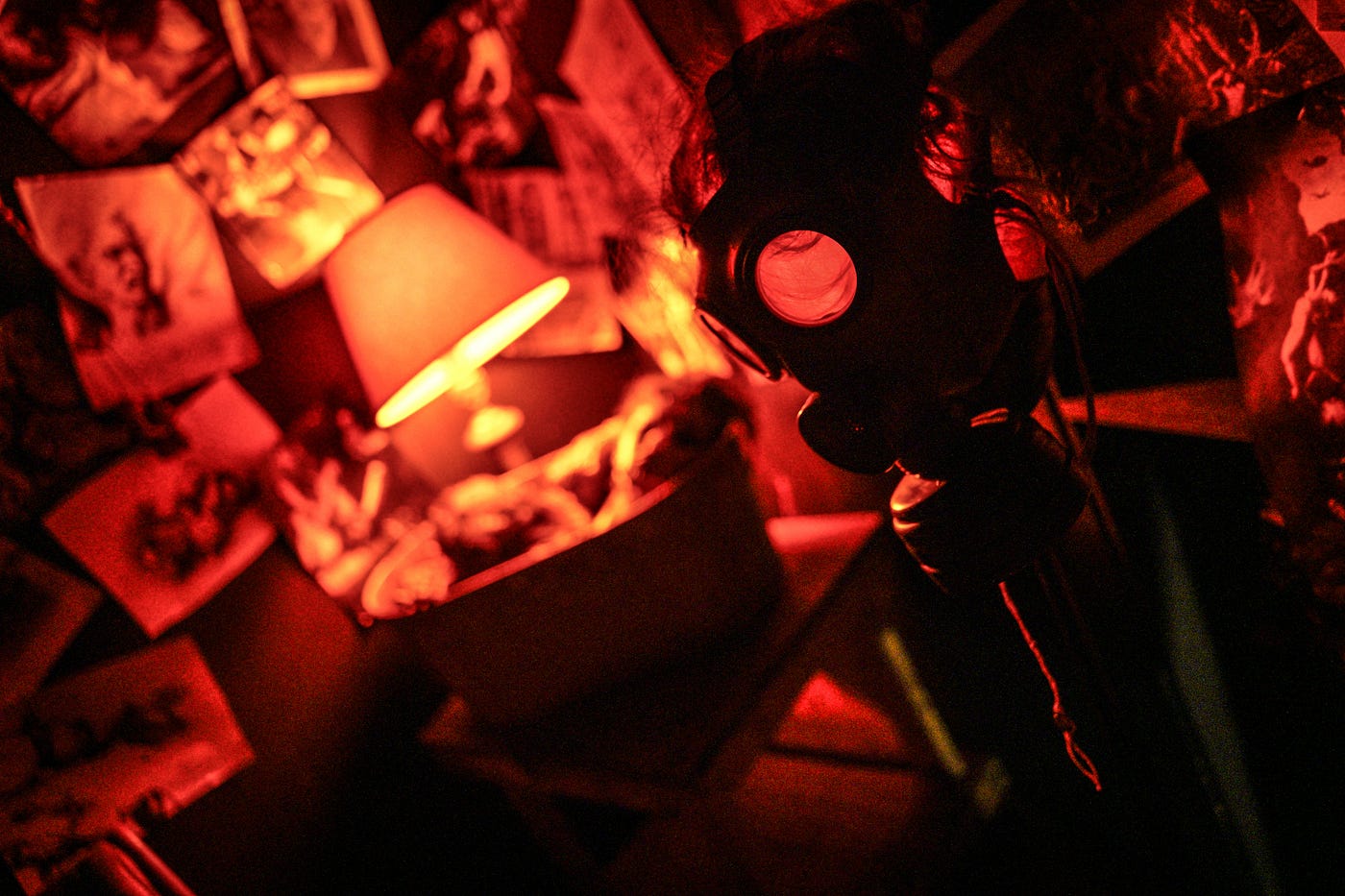
I personally loved Dark Passage and would easily recommend it for any regular NoPro reader, or anyone who’s more familiar with the art form. The story was complex enough that it was a fun challenge for me, but consider that I see at least an immersive piece a week and have become utterly fearless in bantering with characters. I worry it might have been impenetrable for a less initiated audience, such as the ones I observed during my two experiences. I worry that immersive theatre will have a hard time playing outside its established markets.
But don’t take this as a call to simplify the production to make it easier to swallow for a less experienced crowd. Instead, I’d urge better education and onboarding. Dark Passage attempted this by placing some literature in the waiting areas, giving a brief introduction which encouraged us to explore on our own and ask questions, and provided some simple clues pointing to hidden rooms. But for an audience that uninitiated, a more structured pre-show would do wonders, and also build out the length of the experience (which was unfortunately shortened to a single hour due to fire code regulations). The design of Dark Passage essentially forces audience members to begin interacting with the performers right away, rather than meeting the participants on their own terms; this can be difficult to swallow given that the experience also has one leg firmly planted in haunt territory, so some audiences show up expecting to be passively scared, as opposed to the more intimate horror of being required to dig for hidden, forbidden knowledge and engage with frightening and unsavory beings.
Dark Passage represents a bright future for Pseudonym Productions, and the Philadelphia immersive scene in general. I’m excited to see where they continue to take the form, and the new heights they can bring to the Philadelphia scene. Dark Passage is proof positive that Pseudonym can fully construct and populate a rich, layered dream-world; now their biggest challenge is how to ease their audience in.
Dark Passage continues through November 2. Tickets are $35–79.
Note: Pseudonym Production’s Ricky Brigante is a contributor to No Proscenium. He had no involvement in the editorial process around this review, nor did anyone at Pseudonym.
NoPro is a labor of love made possible by our generous Patreon backers. Join them today!
In addition to the No Proscenium web site, our podcast, and our newsletters, you can find NoPro on Twitter, Facebook, YouTube, Instagram, in the Facebook community Everything Immersive, and on our Slack forum.
Office facilities provided by Thymele Arts, in Los Angeles, CA.



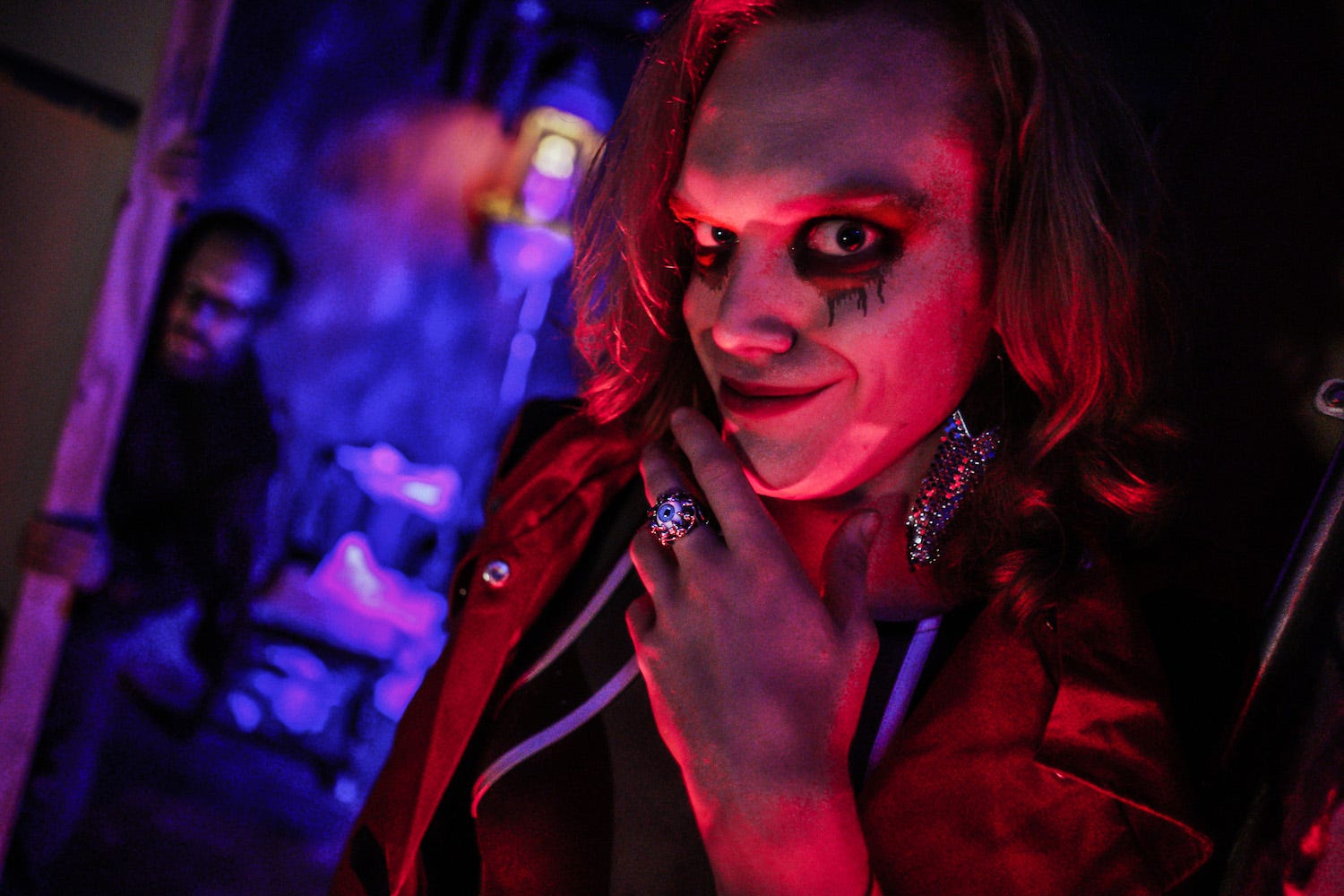
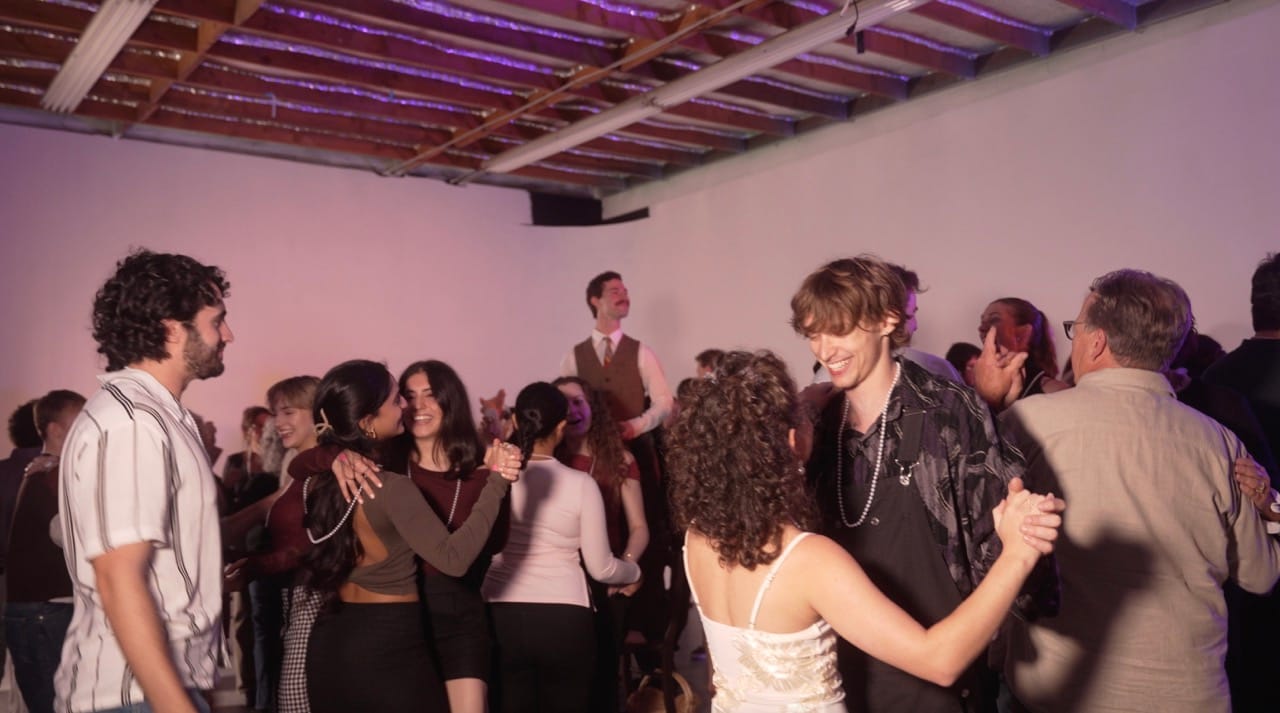

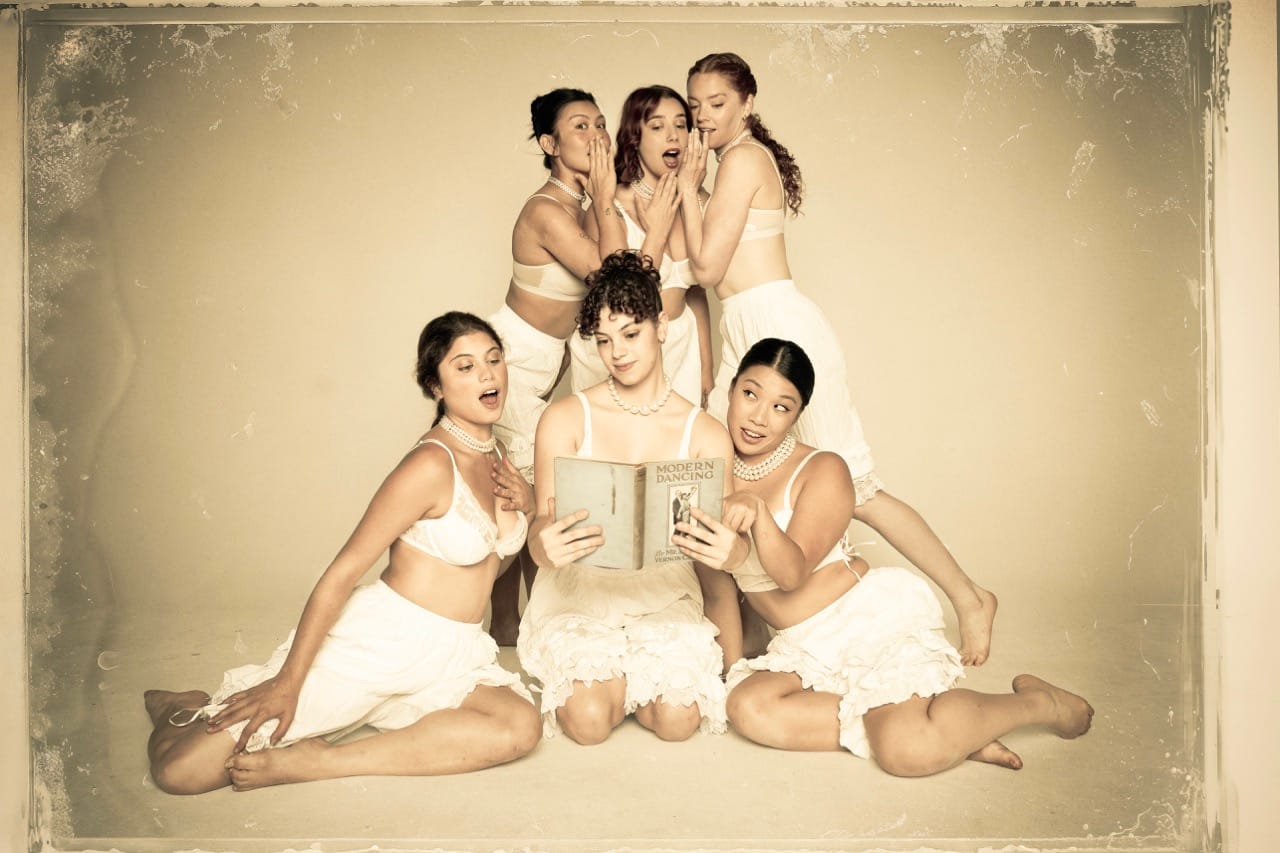









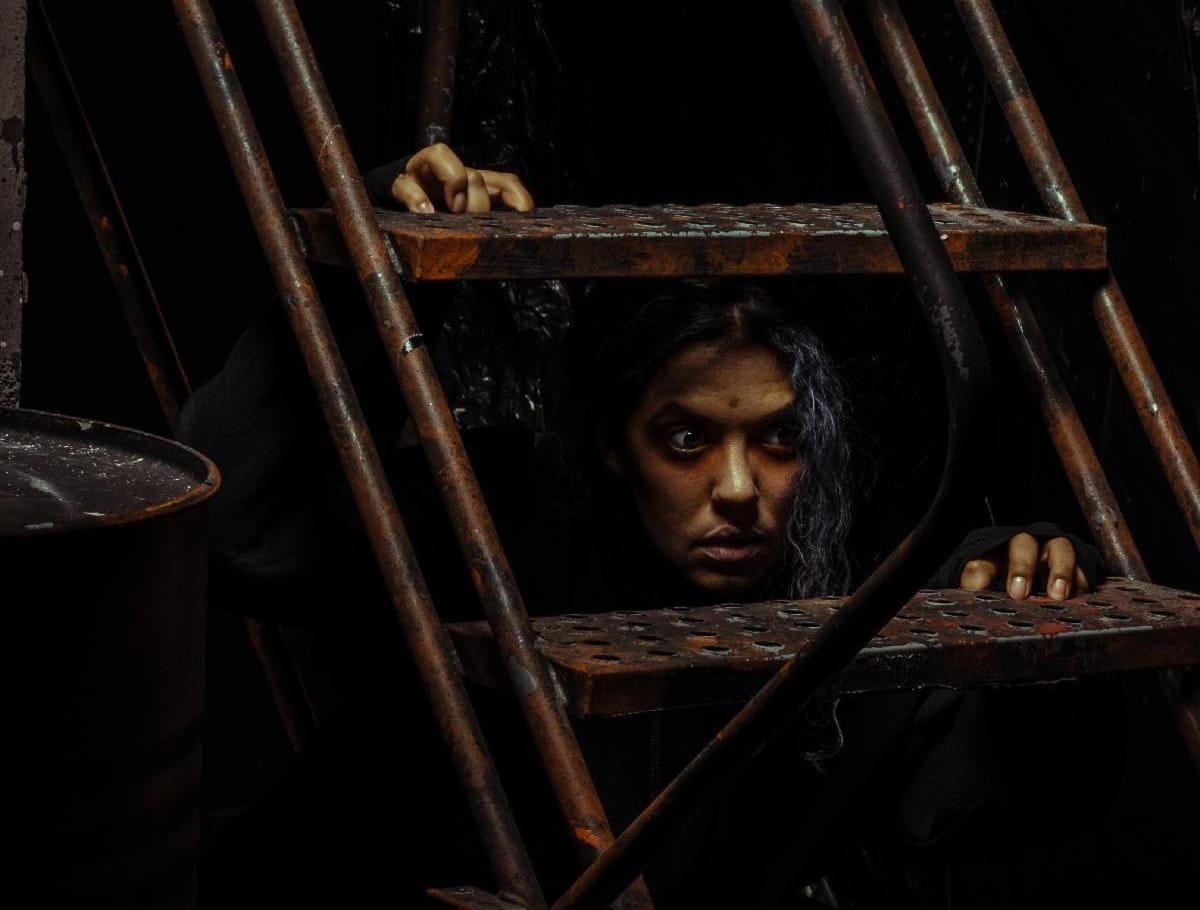
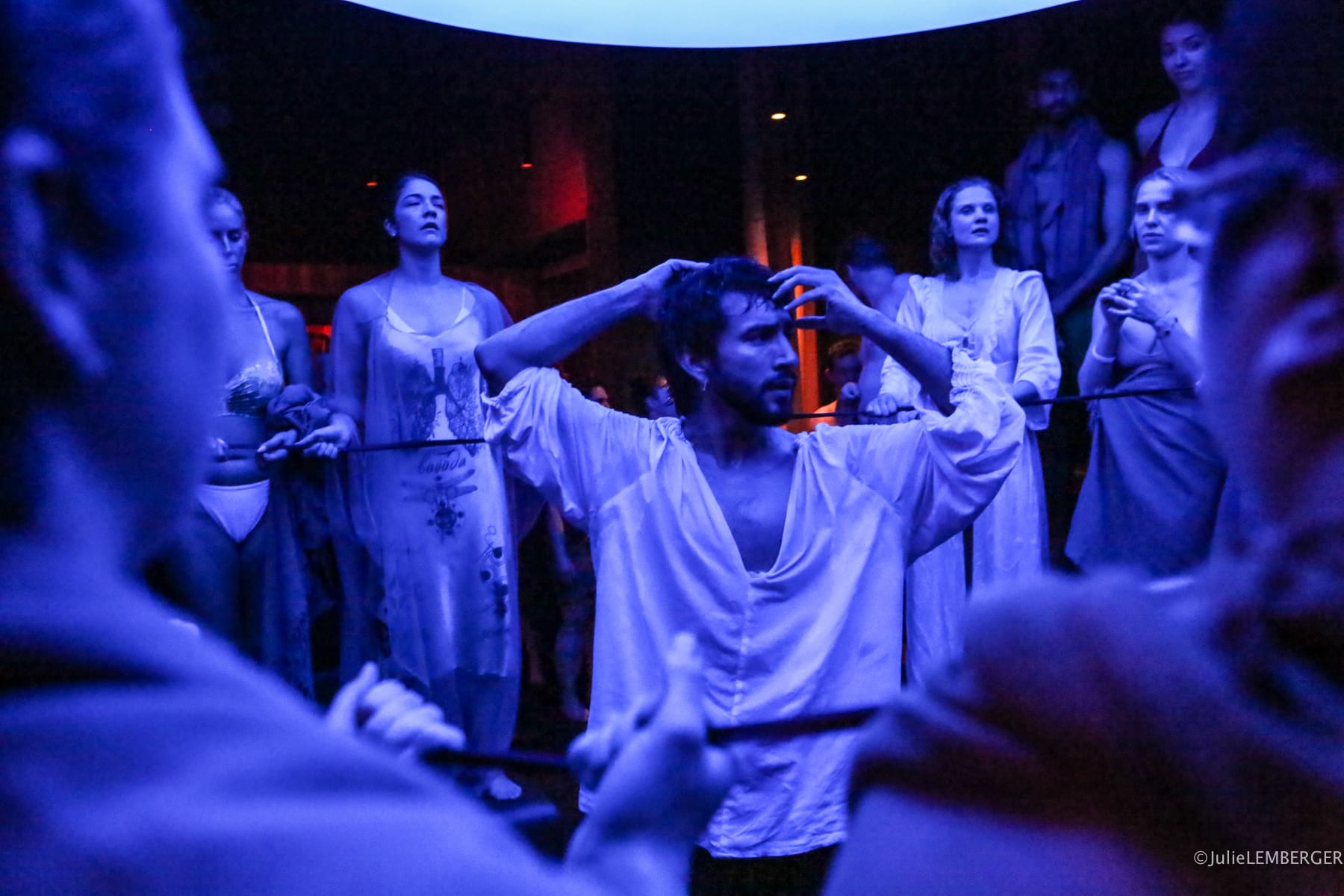
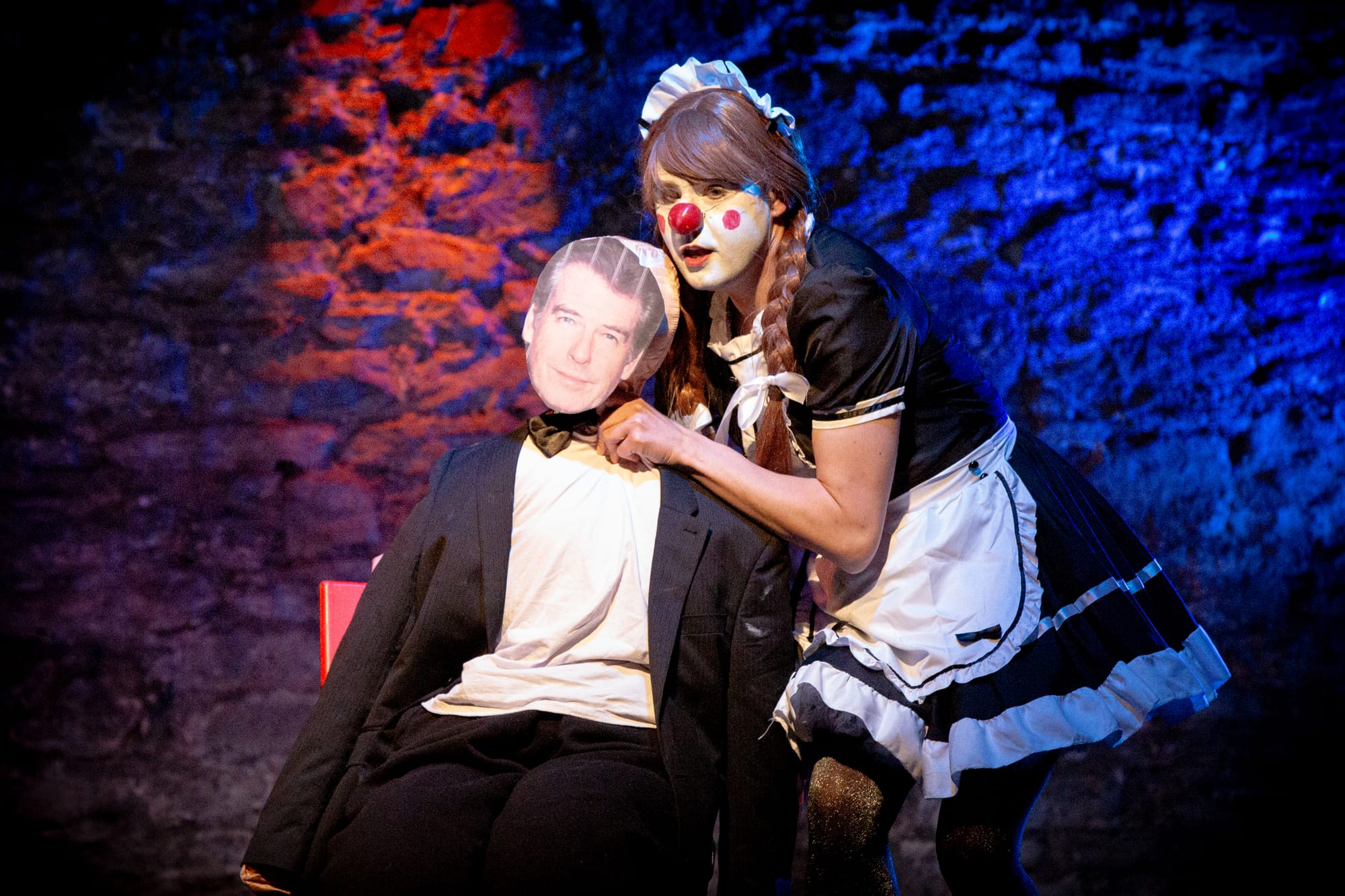
Discussion